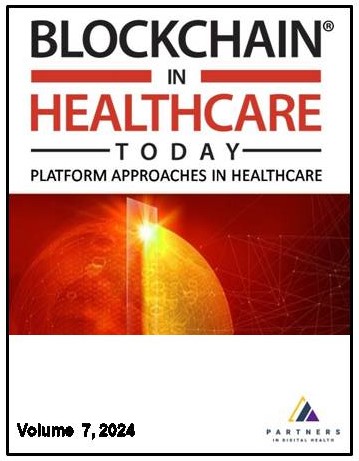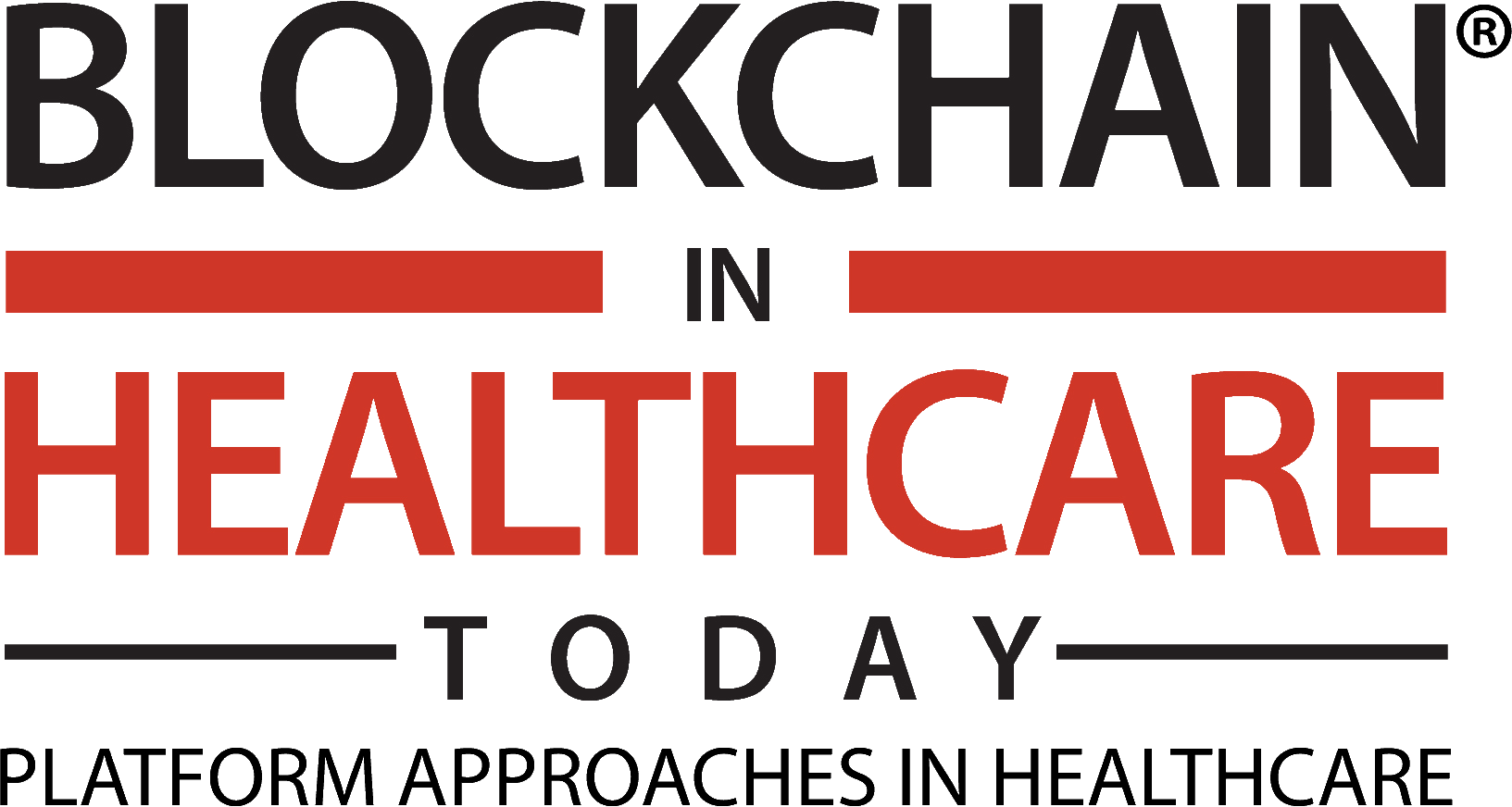Current issue

Volume 7, Issue 3, 2024
Online ISSN: 2573-8240
Volume 7 , Issue 3, (2024)
Published: 16.12.2024.
Open Access
Blockchain in Healthcare Today (BHTY) is the leading international open access journal that amplifies and disseminates platform approaches in healthcare and distributed ledger technology research and innovations. Fields of interest include healthcare information systems, leveraging data science tools and techniques, interoperability, consent mechanisms, privacy preservation, security of health data, clinical trials management, supply chain management, revenue cycle automation, immersive technologies, tokenomics, governance, regulation, network technologies, clinical computing, cryptography, and failed experiments in this expanding specialty field of research.
All issues
Contents
14.01.2023.
Conference Presentations
Walk Before You Run: Why Healthcare Needs Web 2.5 Before It Can Adopt Web3
In this sessions speakers discuss: What elements of blockchain technology can healthcare benefit from TODAY without committing to decentralization The strategy for utilizing DAML for the purpose of progressive decentralization in enterprise Converging how TradFi was brought on chain to innovate healthcare payments Future strategies utilizing DAO’s and NFT’s in a heavily regulated environment
Bart Cant, John Hatchell
14.01.2023.
Conference Presentations
Implementing Democratized Patient Health Record Access Through Distributed Ledger Technologies and Token Economics
This session delves into a real use case that led to the development of an existing production quality consumer app currently available on both Apple App Store and Google Play. The discussion focuses on practical considerations, implementation decisions and the nuances of the token economics that were the foundation of this solution.
Jim Nasr
14.01.2023.
Conference Presentations
Closing a Key Gap in DSCSA Compliance with Credentialing
In this session, the Open Credentialing Initiative (OCI) introduces the concept and practical application of electronic credentials. The audience will learn about their use in the context of DSCSA and how they enable timely compliance with the DSCSA Authorized Trading Partner (ATP) requirements.
Bob Celeste, David Kessler
14.01.2023.
Conference Presentations
Zero Trust: Enabling the Last Mile of Biomedical AI Research
Over 90% of all biomedical AI research is stalled due to its inability to access real world protected health information to complete the required clinical validation and valuation prior to its deployment. With AI forecasted to improve patient outcomes by 40% and costs by 50% the new paradigm of zero trust must be adopted and leveraged to avoid the existential crisis facing biomedical AI research. Join us and learn how confidential computing and blockchain meet the requirements of zero trust.
Stephen Dennis, Dr. Bob Rogers
14.01.2023.
Conference Presentations
Future Health: Leveraging Space for Health Innovation
Mr. James Hury, Deputy Director and Chief Innovation Officer for the Translational Research Institute for Space Health (TRISH) explores the future of health, and how preparing technologies to protect the health of astronauts in deep space can advance health for all humans, wherever they explore. Supported by the NASA Human Research Program (HRP), TRISH is an applied space health research catalyst that funds disruptive, high-impact scientific studies and technologies to equip astronauts for deep space exploration. The institute is seeking bold, courageous proposals from experts in disciplines spanning medicine, science, technology, and engineering who have the ideas and skills that will help us find solutions for the challenges and limitations facing human space travel.
James Hury III
14.01.2023.
Conference Presentations
How Blockchain Transforms Payer Processes to Create a Person-Centered Experience
The panel discussion will cover how blockchain enables a more person-centered experience from the beginning of care through payment. With examples from real-world use cases, the discussion will explore how healthcare organizations can better collaborate together using blockchain, co-create workflows and joint processes, and deliver a better experience. The discussion will answer these questions: How are blockchain-enabled solutions more focused on the person? What does the network solve that isn’t addressed by other solutions? How do your use cases transform the member’s experience? What ways can providers and payers collaborate and work together better using blockchain?
Gabriela Pelin, Mark Treshock, Bob Holzer
14.01.2023.
Conference Presentations
Blockchain Technology – Delivering Trust to Global Pharmaceutical Distribution
With up to 30% of donated pharmaceutical aid products being diverted, stolen or going to waste in this session we will learn how blockchain technology is addressing some of the biggest trust challenges in the global supply chain. Supply chain issues may prevent people that are in greatest need of life-saving medicines from being treated. Through the use of a Decentralized Knowledge Graph and blockchain technology firms and governmental aid organizations now have visibility to supply chain traceability and transparency of donated medicines. The session will additionally cover ancillary benefits with the implementation of such a solution.
Dan Purtell
14.01.2023.
Conference Presentations
“Hi dear, the doctor is here – where is our EMR wallet?”
Virtual healthcare is positively transforming how healthcare is delivered. As a result, multiple organizations must come together to execute care delivery that’s complicated by challenges with centralized EMR systems in virtual care management. Information management, including storage, sharing, and accessibility, needs to be carefully managed and considered. Blockchain technology is a viable solution to address new challenges created by virtual care.
Milan Shah
14.01.2023.
Conference Presentations
Generic Manufacturers Can Make BIG Changes with Blockchain Technology
Blockchain technology has surfaced in the generic pharma arena addressing challenges associated with Contract Management, GPO interactions, and Chargeback adjudication. Manufacturers are now burdened with reducing overhead costs that impact the cost of each unit to get medication to patients safely, effectively, and efficiently. Blockchain technology can be used to enhance efficiencies in how partners interact including inventory management, sales data reporting, chargeback validations and rebate accruals.
Corey Greco
13.10.2023.
Conference Presentations
Innovative Minds Shine Bright at the 2023 ConV2X Pitch Competition
On Sept 1, 2023, Partners in Digital Health, publisher of Blockchain in Healthcare Today (BHTY,) conducted the 4th Annual ConVerge2Xcelerate (ConV2X) Ignition Pitch Competition. The competition was recorded for journal and On Demand broadcast viewing. Seven competitors in the digital health and DLT markets presented to eight decerning judges. Entrants were asked to demonstrate how products and services directly impact the telehealth and blockchain in healthcare technology fields from around the globe. Product solution catgories included, but were not limited to:
AI & Tech in Telehealth and Medicine
- Smart home care design, AI, sensors, robotics, chronic care condition(s) using RPM, reducing cost for health systems or patients, enhancing the physician-patient relationship, mixed reality to enhance outcomes in patient care, etc.
Advancing the Business of Health with Blockchain Technology
- Monetization of data, interoperability, improving population health, precision medicine, public health & equity, digital twins, secure identity, DeFi, medical metaverse, supply chain, clinical trials, etc.
Scores were rated from 1-5, with 5 being the highest/best. Criteria appears below. Scores were taillied, and winners selected for each category.
- Impact:
- How likely is the solution to improve outcomes for the problem identified?
- Innovation:
- Does the team provide a convincing rationale for why their solution may work?
- Does the solution provide a creative approach and address specific user needs?
- Scalability:
- How easy would it be to develop and implement this solution?
- Could this solution scale across different markets and therapeutic areas?
- Presentation:
- How effective was the presentation overall?
- Was the solution they are proposing convincingly articulated, presented or visualized?
Tory Cenaj






